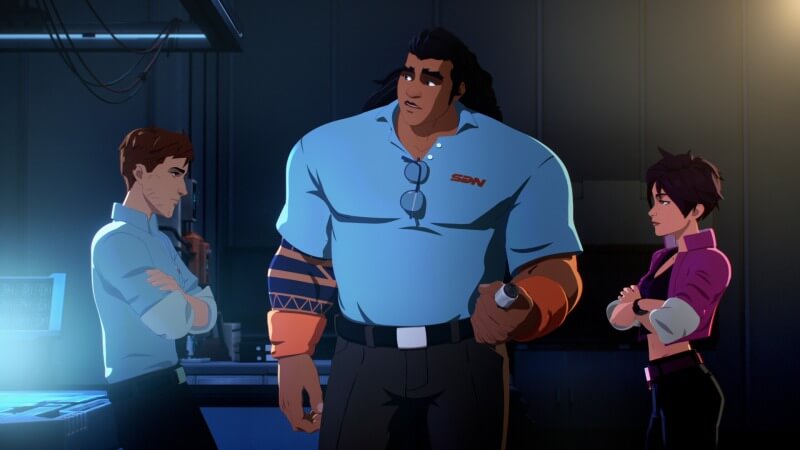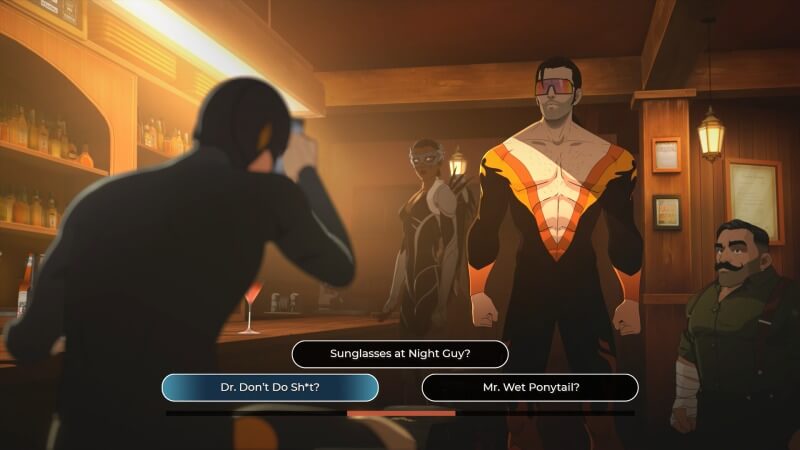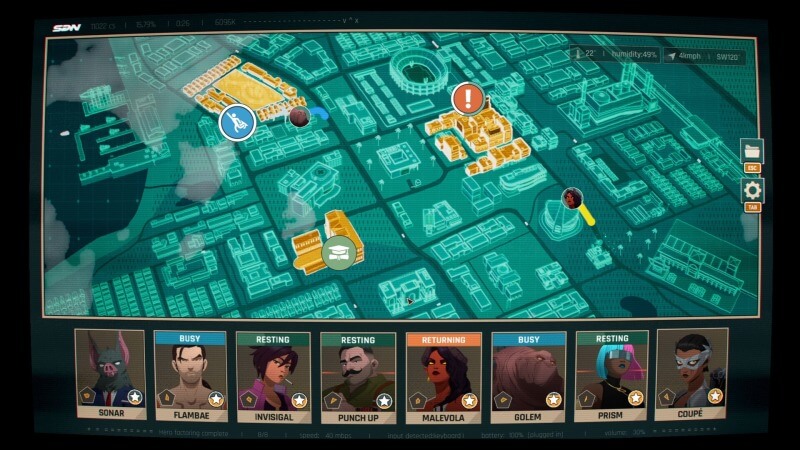So Far, Dispatch Is a Smart Superhero Story That Lives up to Telltale’s Legacy

Seven years later, the absence of Telltale Games is still very much felt. From its early days with the Sam & Max reboots to fully hitting the culture zeitgeist with The Walking Dead, we eventually came to assume that getting a new Telltale game every year, with their episodic release schedules and many fast-paced decisions, was a given. That is, until it wasn’t. And while the studio sort of made a return in 2019 under new management, it hasn’t been quite as prolific, with only one new release—a solidly received take on The Expanse—since then (although, reading about the brutal work conditions at old Telltale, this reduced output is probably a good thing).
I bring all this up because Dispatch, a new narrative-focused superhero game, has quite a few ties to those games: it was developed by Ad Hoc, a studio founded by ex-Telltale staff who worked as writers and episode directors on The Walking Dead, Tales From The Borderlands, and The Wolf Among Us. And thankfully, those ties are deeply felt, because the game comes across as a direct successor to Telltale’s lineage that’s similarly defined by sharp dialogue, fleshed-out characters, and difficult choices (which are of dubious narrative importance). Having played the first two chapters out of eight, I’ll be there weekly to see where this superpowered workplace comedy goes next.
Before getting into the specifics, it’s worth being clear about what the game actually is. It essentially consists of two parts: interactive movie segments and a top-down superhero management sim. As for the former, these sections have even less interaction than something like The Walking Dead, as you don’t directly control your character and can only influence their actions through quick-time events and decision prompts. As for the latter element, these parts often feel like even more mechanics-oriented than most of the games in late-stage Telltale’s mold. While through these initial chapters, more of the runtime is dedicated to the interactive movie segments than the superhero dispatching, each half very much has its merits and ties in nicely with the other.

As for the narrative setup, you play as the unfortunately named Robert Robertson (Aaron Paul), or as he’s better known, Mecha Man. He’s one of many heroes defending LA from various villains and bad guys, but unlike most of his peers, he doesn’t have any special powers outside his several-ton mech suit. He’s barely stringing along when, while in the middle of a quest to avenge his father, the previous Mecha Man, his suit gets totaled. Just what is Mecha Man without this high-tech battle armor?
But just as he’s about to be overcome by feelings of inadequacy and guilt over failing to avenge his predecessor, he gets a lucky break, a job offer. He’s been offered a gig as a dispatcher for a corporate superhero firm. Or more specifically, he’s been put in charge of the “Z-team,” a group of ex-villains trying to reform their ways. If things go well, his new company may be able to even fix up his suit so he can get back to where he feels he belongs.
While you’d be forgiven for wanting to compare that premise to the Suicide Squad or any other number of forced supervillain team-ups, one of the biggest differences here is the stakes. Specifically, this world of heroes and villains feels much more grounded, subdued, and human: at least so far, this is very much not the kind of superhero story about battling intergalactic aliens and interdimensional beings, as made clear in how a significant chunk of the second episode takes place inside the platonic ideal of the boring white collar office, one full of half cubicles, questionable gray-patterned carpeting, and all. The former “villains” that Robert is dispatching don’t seem particularly nefarious, and at worst, come off as small-fry jerks.
Moreover, we see how being a superhero has weighed on Robert’s life, his entire life savings being poured into his exorbitantly expensive mech suit, as he lives in a shabby apartment with shades of Rust Holstin’s pathetic crib in True Detective. This weight is a convincingly portrayed element of his character that segues naturally into witty but not overly snarky dialogue that sees him poking and prodding at his new co-workers in some fun ways. Solid animation work and well-considered visual framing help sell both the laughs and more dramatic moments, but one of the biggest factors in placing us in this world is the excellent voice acting.
-

-

-

-

-

-

-

-

-

-

-

-

-

-

-

-

-

-

-

-

-

-

-

-

-

-

-

-

-

-

-

-

-

-

-

-

-

-

-

-









































